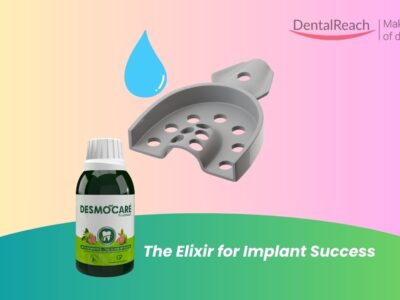Oral cancer ranks as the 13th most common cancer worldwide, with the World Health Organisation (WHO) estimating that in 2020 alone, there were 377,713 new cases and 177,757 deaths due to cancers of the lip and oral cavity. Unfortunately, many patients are diagnosed at advanced stages due to a lack of access to preventive and early detection programs. This often results in poor prognosis.
The gold standard for detecting oral cancer remains methods like tissue biopsy; however, its invasive nature combined with high costs, lack of motivation, and fear of treatment contribute significantly to patient hesitation.
However, recent research has introduced an innovative solution that could transform the early detection of oral cancer—a diagnostic lollipop. Developed by Dr. Ruchi Gupta, Associate Professor of Biosensors at the School of Biochemistry at the University of Birmingham, this tool utilizes ‘Smart Hydrogel’ designed to capture protein in saliva by concentrating it and labeling it using a fluorescent marker called Fluorescein Isothiocyanate (FITC). This marker is attached to hydrogel by a photocleavable bond that releases protein from fluorescein upon exposure to light.
This innovative tool enables researchers to detect even low-abundance proteins that potentially indicate early-stage oral squamous cell carcinoma. It promises a revolution in oral cancer screening as it is painless, non-invasive, simple, and self-administered.
Although initial research on the diagnostic lollipop is promising, further development is needed for its widespread use. Currently requiring 12 hours of immersion in the sample to capture the protein adequately, ongoing research aims to reduce this time frame to under ten minutes. Supporting further research and development will help address current limitations and unlock this novel tool’s full potential.
With a more accessible and patient-friendly approach like the diagnostic lollipop, we can significantly improve early detection rates for oral cancer. This will ultimately lead to fewer complications associated with late-stage diagnosis and offer a brighter outlook for patients globally.
Source: The British Dental Journal




















Comments